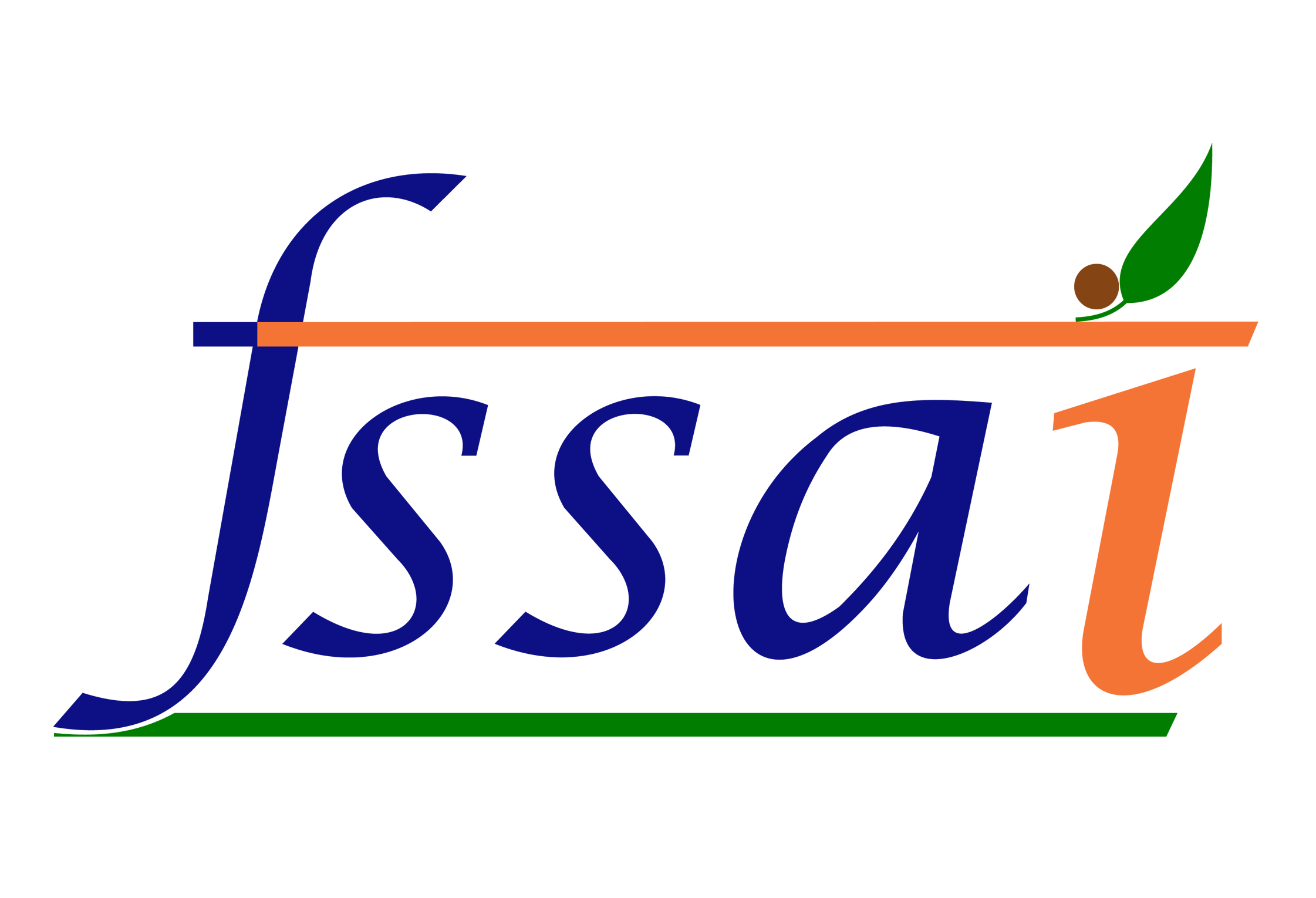The Food Safety and Standards Authority of India (FSSAI) plays a pivotal role in ensuring the safety and standards of the food business in India. Acquiring an FSSAI license is mandatory for anyone involved in the food industry. This guide provides an in-depth analysis of the steps involved, required documents, government fees, and the advantages of obtaining an FSSAI license.
Understanding FSSAI License
FSSAI licensing ensures that food businesses operate with a standard set of guidelines to maintain safety and quality. It’s a mandatory compliance measure to regulate and monitor the food business in India.
Here’s a brief overview of each category under FSSAI Licensing:
1. Basic Registration
- Eligibility: Small businesses with an annual turnover of up to INR 12 lakhs.
- Advantages: Legal recognition and the ability to grow business within a local framework.
- Process: Simple application through Form A on the FoSCoS portal.
2. State License
- Eligibility: Medium-sized businesses with a turnover between INR 12 lakhs and INR 20 crores.
- Advantages: Operate at a state level with greater business scope than basic registration.
- Process: Detailed application through Form B, more documentation required compared to basic registration.
3. Central License
- Eligibility: Large businesses with a turnover exceeding INR 20 crores, including exporters and importers.
- Advantages: Ability to operate on a national scale and engage in import/export activities.
- Process: Comprehensive application through Form B with stringent documentation and compliance measures.
Each license type is designed to fit the scale and scope of the business, ensuring that the food industry operates efficiently while maintaining consumer safety and trust.
Steps Involved in FSSAI Registration
1. Determine Eligibility
The first step in obtaining an FSSAI license is to determine which category of license is appropriate for your food business. This is based on the scale of your operations and annual turnover:
- Basic Registration: For businesses with an annual turnover of up to INR 12 lakhs.
- State License: For businesses with an annual turnover between INR 12 lakhs and INR 20 crores.
- Central License: For businesses with an annual turnover exceeding INR 20 crores.
Choosing the correct category is crucial as it dictates the regulatory requirements and the scope of your business activities within the food industry.
2.Prepar e Required Documents:
- Form A or B: Complete and sign the relevant application form. Form A is for Basic Registration, while Form B is for State and Central Licenses.
- Passport-sized Photograph: Provide a recent photograph of the applicant.
- Proof of Premises: Submit documents such as a rent agreement or electricity bill to verify your business location.
- Identity and Address Proof: Include documents proving the identity and address of the business owner or authorized signatory.
- Business Registration Documents: Depending on your business structure (e.g., sole proprietorship, partnership, company), provide Articles of Association, Partnership Deed, or Certificate of Incorporation.
- List of Food Products: Prepare a comprehensive list of the food products your business intends to deal with.
- Food Safety Management System Plan: Outline your plan for maintaining food safety standards.
Ensuring that you have these documents ready will streamline the FSSAI registration process and help you obtain the necessary license efficiently.
3. Fill the Application Form
- Access the Foscos Portal: Visit the Food Safety Compliance System (FoSCoS) official website to start the application process.
- Choose the Application Type: Select ‘Apply for License/Registration’ and choose the appropriate form:
- Form A for Basic Registration.
- Form B for State and Central Licenses.
- Enter Business Details: Provide accurate details about your business, including the name, address, and contact information.
- Specify Food Categories: List all the food categories that your business will handle. This is crucial for determining the scope of your FSSAI license.
- Attach Supporting Documents: Upload the required documents, such as identity proof, address proof, and a list of food products.
- Declaration and Submission: After filling out the form and attaching documents, submit a declaration affirming the accuracy of the information provided.
- Review and Finalize: Before submission, review all the details for accuracy. Once confirmed, submit the form to proceed to the payment section.
Completing the application form with attention to detail is essential for a successful FSSAI registration. Ensure all information is current and correct to avoid any delays in the licensing process.


[…] Key Benefits of Startup India Registration […]